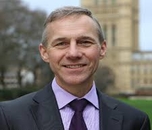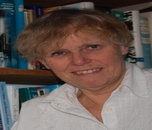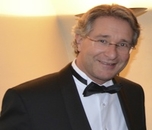Day 1 :
Keynote Forum
Nigel Gibbens
Chief Veterinary Officer
UK
Keynote: The veterinary role in meeting key global challenges, now and for the future
Time : 10:15-10:50

Biography:
Nigel Gibbens CBE is the UK’s Chief Veterinary Officer. He was appointed in May 2008 following previous experience in the State Veterinary Service and in policy roles on international trade, BSE controls, animal welfare and international relations co-ordination for Defra’s Food and Farming Group. Prior to joining the UK government in 1990, Nigel worked in private practice in his early career and in government veterinary services in Belize and Yemen. Nigel holds an Honorary Professorship from the Royal Veterinary College. He was appointed Commander of the Order of the British Empire (CBE) for services to the veterinary profession and animal welfare in the New Year’s Honours list for 2016.
Abstract:
As veterinarians we are facing global challenges on an ever increasing scale. This presentation will set out the importance of the veterinary profession to society in a changing and challenging environment. An increasing human population increases the pressure on the livestock and agricultural sector to provide safe and healthy food for all; increasing livestock means more intensive farming and pressure on welfare. Global population movement and increased trade opens new pathways for emerging diseases, while some of the old threats re-emerge. Climate change will result in changing patterns of livestock production and can bring both animals and humans into contact with wildlife, threatening biodiversity as well as leading to new transboundary diseases. rnHowever, as we settle into the 21st Century, we have opportunities to embrace new technologies, be it new diagnostics or the challenge we face with the rise of AMR, new ways of farming, new food sources, adapting to climate change and working closely with industry sectors, public health colleagues and international colleagues on agendas for One Health and One Welfare.
Keynote Forum
Marian Stamp Dawkins
University of Oxford
UK
Keynote: Chickens on camera: Precision technology to enhance poultry production and welfare
Time : 10:50-11:25

Biography:
Marian Stamp Dawkins is a Professor of Animal Behavior at the University of Oxford and has been involved in research on farm animal welfare, particularly that of poultry, for many years. She has a particular interest in how to improve welfare in practice and works extensively with commercial poultry producers in the UK, France and the US. Her most recent book is Why Animals Matter: Animal Consciousness, Animal Welfare and Human Well-being (2012). In 2014 she was awarded a CBE for services to animal welfare science.
Abstract:
There are potential conflicts between efficient poultry production and animal welfare that can often be resolved or at least reduced by explicitly showing the financial benefits of improved animal welfare such as reduced mortality, improved animal and human health, improved product quality, improved disease resistance, reduced medication and ability to command higher process from consumers and use of precision technology to improve flock management. An automated system that monitors the behavior of chicken flocks using optical flow will be described. This aims to improve both animal welfare and flock management efficiency using statistical analysis of flock movements. The system consists of small cameras positioned inside chicken houses linked to a computer that processes the data in real time and delivers a ‘verdict’ on the state of the flock every 15 minutes. Information stored is thus secure as video records do not need to be kept. A graphical output onto a computer or tablet enables the producer to see how a given flock is behaving in comparison to other flocks of known health and welfare status. The system provides early warning of key health and welfare indicators such as high levels of final mortality, hock burn, pododermatitis and poor gaits. It can detect potential problems when the birds are only a few days old, before they show obvious symptoms and when interventions are still possible. Optical flow has higher predictive value as a flock management tool than other variables used in flock monitoring such as water use, but can potentially be combined with this and other flock information to give even higher levels of prediction. Furthermore, by monitoring the behavior of the flocks, it is possible to detect flocks carrying Campylobacter in birds as young as 7 days, far earlier than is possible with conventional sampling methods. Precision technology combined with better use of the data already collected by the poultry industry has the potential to improve both the welfare and efficiency of poultry production.
Keynote Forum
Jonathan Heeney
University of Cambridge
UK
Keynote: One health and the future of the veterinary profession
Time : 11:40-12:15

Biography:
Jonathan Heeney is a Professor of Comparative Pathology at the University of Cambridge, UK. His work bridges both veterinary and human medicine, infectious diseases and oncology.
Abstract:
Many of the Global health challenges embody the ever increasing interaction of animals and humans and the interrelationship between human and animal health. This lecture will use the example of emerging and re-emerging infectious diseases of animals and humans to illustrate the expanding need and career opportunities for Veterinarians beyond clinical practice.
